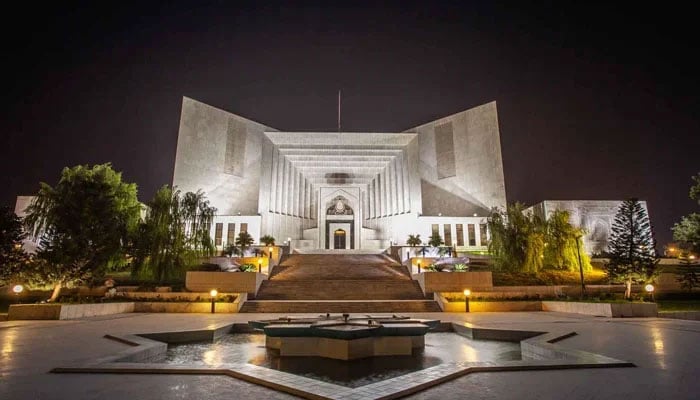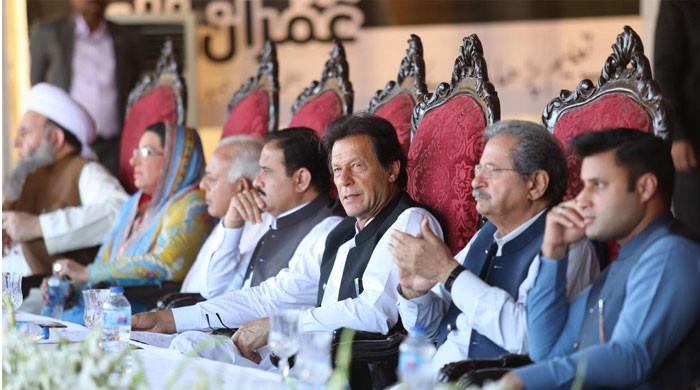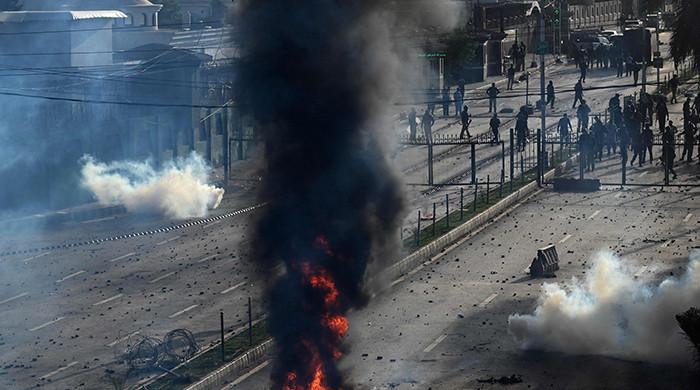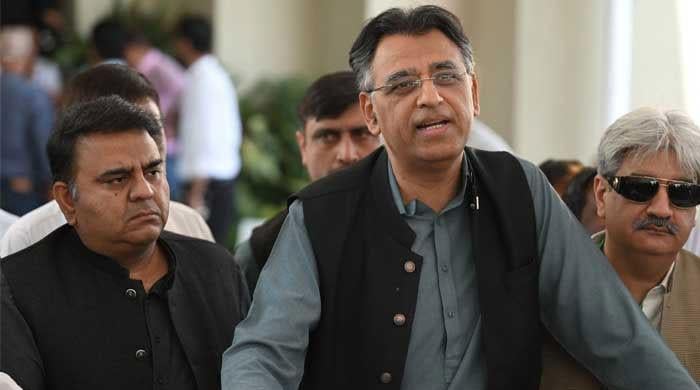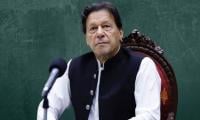Govt requests top court to dismiss petitions challenging law regulating CJP's powers
There is no bar that prevents parliament from legislating on matters contained in Practise and Procedure Act, says PDM alliance
ISLAMABAD: The Pakistan Democratic Movement (PDM)-led government has submitted its response to the Supreme Court in a case related to Practise and Procedure Act, 2023, seeking the dismissal of the petitions challenging the ruling alliance’s move to regulate the powers of chief justice.
Additional Attorney General for Pakistan Amir Rehman submitted the federal government’s eight-page response to the SC three-member bench hearing the petitions against the controversial legislation.
The government, in its response, maintained that the Supreme Court (Practice and Procedure) Act, 2023 had become an act of parliament after it was passed in a joint sitting last month.
“The instant Petition[s are] clearly an attempt to prevent the advancement of justice, independence of judiciary and availing of remedy to persons aggrieved of any judgment and/or order of this Hon'ble Court passed under Article 184(3),” it added.
The Pakistan Democratic Movement (PDM)-led coalition government said the petitioners have approached the apex court “with unclean hands, lack bonafide and as such, are not entitled to any indulgence by this Hon'ble Court as the same would unnecessarily prejudice public trust in the independence and impartiality of this Hon'ble Court”.
Under the new legislation, the government said the power to constitute benches, which is "thereto vested in the chief justice under the Supreme Court Rules, 1980 (the SC Rules), is to be exercised by a committee comprising of the chief justice and the two next senior-most judges of this Court".
“The SC Rules itself, and rightly so given the mandate of Article 191 of the Constitution, subjects the powers of the Hon'ble Chief Justice to constitute benches to the law.”
Therefore, the government said there is no bar that prevents the parliament from legislating on the matters contained in the act.
The government’s response also stated that there is no concept of “Master of Roster” and no statutory backing but is a term generally applied and understood in the context of the provisions of the SC Rules.
It added that the Federation respectfully reserves the right to raise additional grounds in respect of the constitutionality of the petitions and implored the top court to dismiss the petition.
An eight-member larger bench of the apex court headed by CJP Umar Ata Bandial and comprising Justice Ijaz ul Ahsan, Justice Munib Akhtar, Justice Sayyed Mazahar Ali Akbar Naqvi, Justice Muhammad Ali Mazhar, Justice Ayesha A Malik, Justice Syed Hasan Azhar Rizvi and Justice Shahid Waheed is hearing the petitions against the controversial bill.
Background
The Supreme Court (Practice and Procedure) Act 2023, which is aimed at regulating the powers of the CJP, was approved by the Parliament during a joint sitting on April 10.
The National Assembly, on April 21, notified the Supreme Court (Practice and Procedure) Bill 2023 as an act.
The bill's implementation was halted by the same bench hearing the case.
The top court, during the last hearing of the case on April 13, had stopped the implementation of the law observing that if the law received the assent of the president, the bill would not be acted upon in any manner till further order.
“The moment that the Bill receives the assent of the President or (as the case may be) it is deemed that such assent has been given, then from that very moment onwards and till further orders, the Act that comes into being shall not have, take or be given any effect nor be acted upon in any manner,” read the nine-page interim order issued on April 13.
In its order, the bench stated that the facts and circumstances presented here are extraordinary both in import and effect.
-
Military slams Imran Khan over ‘fabricated allegations’ against senior army officer
-
PML-N hopeful of winning polls as it begins electioneering
-
CM Naqvi orders audit after Abbasi alleges billions of rupees corruption in free flour
-
Govt, PTI agree on holding election simultaneously despite deadlock on date
-
'Bushra Bibi to initiate legal action against Maryam over bribe allegations'
-
Abbasi alleges misappropriation of billions of rupees in free flour scheme
-
PTI, PML-N cast doubts on talks success ahead of ‘final round’ on Tuesday
-
Video of Imran Khan facing ‘tough question’ goes viral
